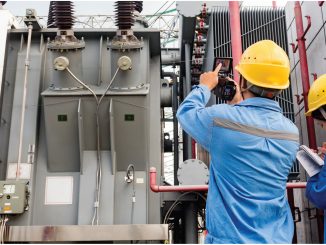In a world where sustainability and cost-effectiveness are becoming increasingly vital, the concept of an energy audit has gained significant prominence. This comprehensive assessment of energy usage within residential, commercial, or industrial spaces holds the potential to not only identify inefficiencies but also pave the way for substantial savings. In this article, we’ll delve into the significance, process, benefits, and importance of energy audits in our modern, energy-conscious landscape.
Table of Contents
- Introduction
- What is an Energy Audit?
- Importance of Energy Audits
- Types of Energy Audits
- 4.1 Level 1: Walk-Through Audit
- 4.2 Level 2: Standard Audit
- 4.3 Level 3: Detailed Audit
- The Energy Audit Process
- 5.1 Initial Assessment
- 5.2 On-Site Inspection
- 5.3 Data Analysis
- 5.4 Recommendations
- Benefits of Energy Audits
- 6.1 Enhanced Energy Efficiency
- 6.2 Cost Savings
- 6.3 Environmental Impact
- 6.4 Improved Comfort
- Implementing Audit Recommendations
- 7.1 Upgrading Lighting Systems
- 7.2 HVAC Improvements
- 7.3 Insulation Upgrades
- 7.4 Appliance Replacement
- DIY vs. Professional Energy Audits
- Future of Energy Audits
Conclusion

Introduction
As energy consumption continues to rise, the need to optimize energy usage becomes crucial. This is where energy audits come into play – they serve as the roadmap to a more energy-efficient future.
What is an Energy Audit?
An energy audit is a systematic evaluation of how energy is used within a building, facility, or system. It aims to uncover areas of energy wastage and inefficiency, providing actionable insights to reduce consumption.
Importance of Energy Audits
Energy audits hold immense significance in a world grappling with energy crises and environmental concerns. They not only reveal hidden inefficiencies but also contribute to reducing carbon footprints and overall energy dependency.
Types of Energy Audits
Level 1: Walk-Through Audit
This preliminary audit involves a brief assessment of energy usage, focusing on low-cost and no-cost improvements. It provides a general overview of energy consumption patterns.
Level 2: Standard Audit
A more detailed audit, Level 2, involves a thorough inspection of energy systems, data collection, and analysis. It offers a deeper understanding of consumption trends and potential savings.
Level 3: Detailed Audit
The most comprehensive of all, Level 3, entails advanced diagnostics and monitoring equipment. It’s often used for complex industrial systems, providing highly detailed insights.
The Energy Audit Process
Initial Assessment
The process begins with gathering historical energy usage data and understanding the building’s layout and function.
On-Site Inspection
An auditor conducts a detailed on-site analysis, looking into lighting, HVAC systems, insulation, and more.
Data Analysis
Collected data is analyzed to identify patterns, trends, and areas of energy inefficiency.
Recommendations
Based on the analysis, the auditor proposes energy-saving recommendations, prioritizing them for effective implementation.
Benefits of Energy Audits
Enhanced Energy Efficiency
By pinpointing wastage and suggesting improvements, energy audits lead to more efficient energy consumption.
Cost Savings
One of the most appealing aspects is that energy audits result in reduced energy bills, translating to significant cost savings.
Environmental Impact
Lower energy consumption means decreased carbon emissions, contributing to a greener environment.
Improved Comfort
Energy audits often identify factors affecting comfort, such as poor insulation or HVAC issues, leading to enhanced living or working conditions.
Implementing Audit Recommendations
Upgrading Lighting Systems
Switching to energy-efficient lighting options, such as LEDs, significantly cuts down energy usage.
HVAC Improvements
Optimizing heating and cooling systems through regular maintenance and upgrades reduces energy wastage.
Insulation Upgrades
Enhanced insulation prevents energy losses, making spaces more energy-efficient.
Appliance Replacement
Old, energy-hungry appliances can be replaced with energy-star-rated ones, curbing consumption.
DIY vs. Professional Energy Audits
While DIY audits are possible, professional audits offer more accuracy and detailed insights, making them a better long-term investment.
Future of Energy Audits
As technology evolves, energy audits will become even more advanced, allowing for real-time monitoring and instant corrective actions.
Conclusion
Energy audits represent a crucial step towards a sustainable and economical future. By identifying energy wastage and implementing efficiency measures, individuals and businesses can contribute to a better planet while enjoying significant savings on their energy bills.




